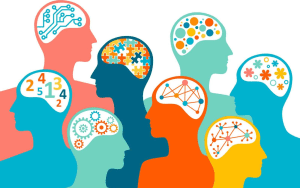Thinking Differently About People Who Think Differently: Introduction to Neurodiversity Affirming Therapy for Adults (3HR)
Jenara Nerenberg, the author of ‘Divergent Mind: Thriving in a World That Wasn’t Designed for You’ wrote “The world will benefit significantly from talents such as empathy, emotional intensity, certitude, sensitivity, ability to detect details, depth of thought, will to embrace, and many other things that we need in a time where alienation, coldness, superficiality, and emotional hardness are predominating.” Yet, how often do people get diagnosed with a “disorder” when, in fact, they are actually just presenting with a neurodiverse brain that interprets the world differently? In this training, we will explore the definition of neurodiversity and the accompanying diagnoses along with some of the most common indicators. We will then discuss how to think differently and teach differently about these common diagnoses and then explore how to be better advocates for people with neurodiversity. We will end with some common tools to teach people in treatment that will assist with living with neurodiversity in a neurotypical/invalidating world.
Upon completion of this training, participants will be able to:
- Define neurodiversity and common diagnoses associated with neurodiversity
- Classify common factors associated with neurodiverse brains
- Demonstrate what neurodiverse affirmative therapy looks like in the clinical setting
- Identify skills that can be taught in sessions to help reduce stress and anxiety
This course qualifies for 3 CE hours of Clinical, Evidence-Based Practices, General Skill Building, and Psychopathology training.
Course Instructor: Stacy Blankenship, LCSW
Recording Date: 6/24/2024



